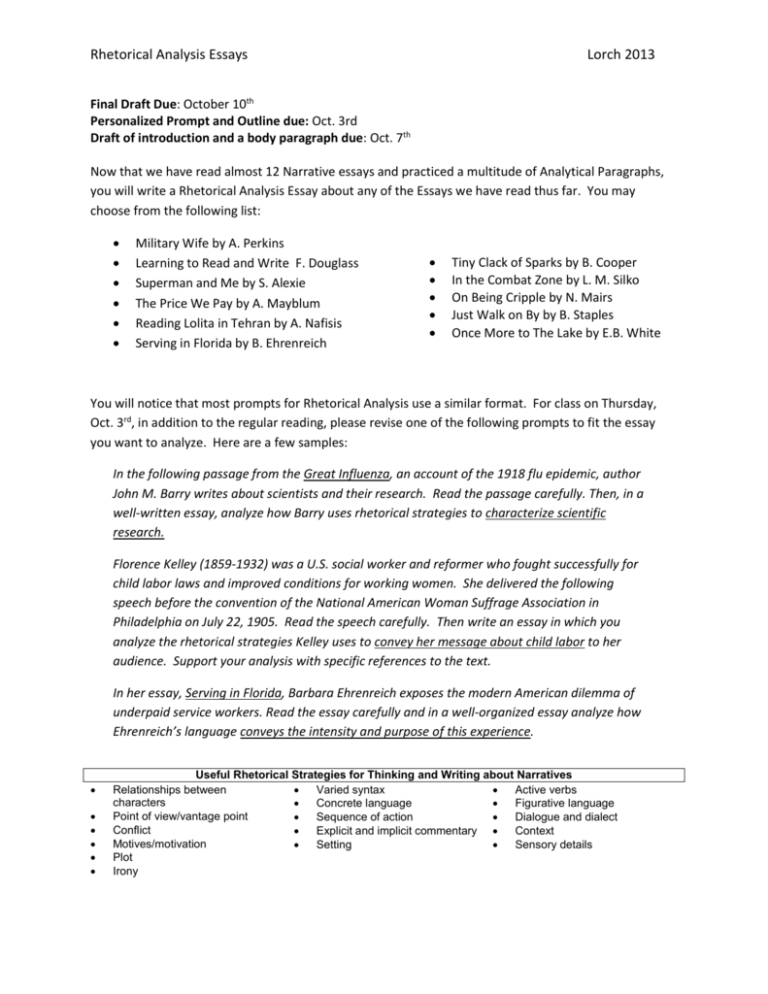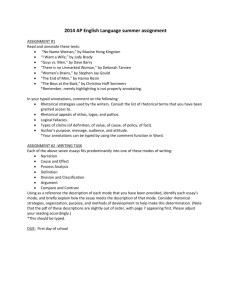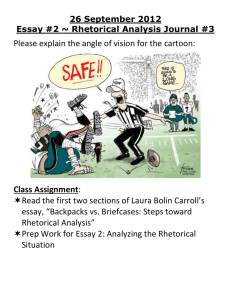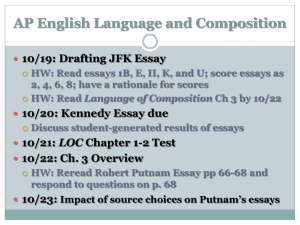Rhetorical Analysis Essays Lorch 2013 Final Draft Due: October 10
advertisement

Rhetorical Analysis Essays Lorch 2013 Final Draft Due: October 10th Personalized Prompt and Outline due: Oct. 3rd Draft of introduction and a body paragraph due: Oct. 7th Now that we have read almost 12 Narrative essays and practiced a multitude of Analytical Paragraphs, you will write a Rhetorical Analysis Essay about any of the Essays we have read thus far. You may choose from the following list: Military Wife by A. Perkins Learning to Read and Write F. Douglass Superman and Me by S. Alexie The Price We Pay by A. Mayblum Reading Lolita in Tehran by A. Nafisis Serving in Florida by B. Ehrenreich Tiny Clack of Sparks by B. Cooper In the Combat Zone by L. M. Silko On Being Cripple by N. Mairs Just Walk on By by B. Staples Once More to The Lake by E.B. White You will notice that most prompts for Rhetorical Analysis use a similar format. For class on Thursday, Oct. 3rd, in addition to the regular reading, please revise one of the following prompts to fit the essay you want to analyze. Here are a few samples: In the following passage from the Great Influenza, an account of the 1918 flu epidemic, author John M. Barry writes about scientists and their research. Read the passage carefully. Then, in a well-written essay, analyze how Barry uses rhetorical strategies to characterize scientific research. Florence Kelley (1859-1932) was a U.S. social worker and reformer who fought successfully for child labor laws and improved conditions for working women. She delivered the following speech before the convention of the National American Woman Suffrage Association in Philadelphia on July 22, 1905. Read the speech carefully. Then write an essay in which you analyze the rhetorical strategies Kelley uses to convey her message about child labor to her audience. Support your analysis with specific references to the text. In her essay, Serving in Florida, Barbara Ehrenreich exposes the modern American dilemma of underpaid service workers. Read the essay carefully and in a well-organized essay analyze how Ehrenreich’s language conveys the intensity and purpose of this experience. Useful Rhetorical Strategies for Thinking and Writing about Narratives Relationships between Varied syntax Active verbs characters Concrete language Figurative language Point of view/vantage point Sequence of action Dialogue and dialect Conflict Explicit and implicit commentary Context Motives/motivation Setting Sensory details Plot Irony Rhetorical Analysis Essays Lorch 2013






